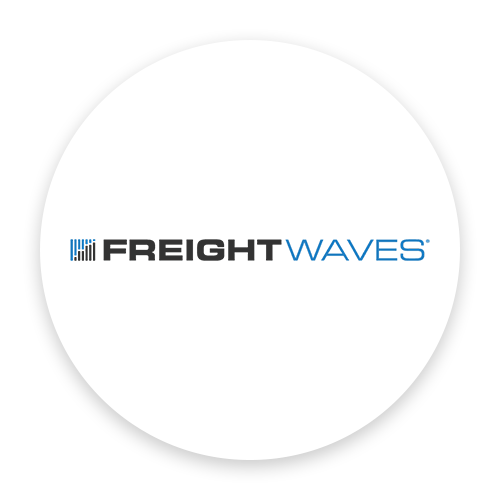ZUUM Automated Broker is the most powerful software available today to digitize freight brokerages. It can be deployed within 24 hours as a comprehensive platform, with modular tools that complete and integrate with existing software. With ZUUM Automated Broker, freight brokers can automate freight management, increase on-time delivery performance, improve customer satisfaction, and achieve higher profits to accelerate growth.
Irvine, California (BUSINESS WIRE) – Today, logistics technology innovator, ZUUM Transportation, launched ZUUM Automated Broker, the SaaS-enabled platform for freight brokers to accelerate their growth by digitizing their operations. ZUUM Automated Broker is the first platform under ZUUM’s modular product line, the Logistics Super Platform that addresses capability gaps for freight brokerages, third-party logistics providers, and freight forwarders. The release of ZUUM Automated Broker illustrates the company’s dedication towards defragmenting the logistics industry by providing the tools necessary for efficient collaboration.
New entrants are capitalizing on the displacement of traditional freight brokerages with the digital freight brokerage (DFB) model by acting as a freight-matching tool for shippers and carriers. Traditional freight brokerages often increase employee headcount to service the influx of freight during volatile markets trends. While this strategy immediately addresses their customers’ capacity needs, it is not sustainable when freight rates stabilize as freight brokers and carriers rely on slim profit margins to keep businesses running. Gartner recommends that “brokers need to turn to digital business models, which require digitization of their solutions.” in order “to stay relevant and competitive” in their report titled, ‘Digitalization and Advancements in Technology Are Forcing Traditional Freight Brokers to Digitize.’
An article published by The Journal of Commerce aptly explains that “brokers need to be all things to all customers innately, without investing in technology in a parallel way, because that would be prohibitively expensive. In short, they need to do more with less.”
Market Research on Freight Broker Software highlights the surge of logistics technology in 2020; however, “high license cost of software” and lack of user-friendly freight broker software options hamper industry-wide adoption.
Although ZUUM offers freight-matching capabilities for shippers and carriers (similar to most DFB), the company is sharing the technology employed by ZUUM’s freight brokerage with external freight brokerages that could be considered competitors to ZUUM.
“At ZUUM, we aim to elevate the industry by providing technology that truly enables the logistics and transportation industry and more importantly, the experts who occupy the space,” says CEO of ZUUM Transportation, Mustafa Azizi. “Prior to launching, we have rigorously tested this our own brokerage and have seen our top freight brokers cover over 30 shipments in a single day. This product is empowering brokers to focus on strengthening relationships with their customers and carrier partners.”
Digital Shipment Management
Users can stay informed on their active shipments and open offers in real-time, streamline communication with external stakeholders and access live market insights to enhance quick decision-making and win more bids. Users can take advantage of features including Instant freight quotes, spot bidding, Automated dispatch and notifications, real-time track and trace, digital document management, email management, e-signature, Issue & Claims management, and more to ensure brokerages are positioned for profitability. These tools are designed to improve on-time-delivery performance, supporting customer satisfaction.
Digital Customer Management
Cultivating customer relationships effectively and efficiently is crucial to growth. Simplified onboarding generates a dossier for each customer enabling users to expedite load tendering and access pertinent contact information to help deliver best-in-class service.
Digital Carrier Management
This platform allows brokers to manage their existing freight network and provides access to new carriers partners that meet their criteria. The digital directory accelerates freight planning while customizable carrier packets streamline onboarding. ZUUM offers the Fleet Manager and Driver mobile apps for carrier partners to maximize efficiency.
Advanced Reports & Predictive Analytics
With Automated Broker, users can generate reports on Service level, Sales, Operator, Shipment, Best/Worst Lanes to monitor performance and enable better planning. These reports can be easily reconfigured to highlight key metrics for internal stakeholders.
Automated Accounting & Billing
Automated billing and invoicing modules reduce paperwork, manual back-office tasks and human error to increase efficiency and profitability.
Upgrades & Customizations
Maximize your capabilities with our upgrades including our Universal Touch (customized pricing algorithm), Dynamic Smart Rate, Dynamic RFP, Routing Guide, AI-drivin, multi-lane pricing, Spot Market Win-Loss Ratio & Lane Analytics, Lane Seeker, ZUUManity (workforce management), and Customized Carrier Onboarding.
Integrations
ZUUM partners with external enterprise-class software through an open API to offer modular technology and help users achieve peak performance
Dan Curtis, President of BNSF Logistics, a leading third-party logistics provider speaks to ZUUM’s principle service. “We have been working with the ZUUM team to help us digitize certain aspects of our brokerage. They have been great to work with and brought immediate value and quick deployment” says Curtis.
ZUUM Automated Broker is designed to magnify the value traditional freight brokers provide to the logistics industry. Quick and effortless deployment enables users to achieve immediate ROI. The release of ZUUM Automated Broker is a critical milestone in ZUUM’s efforts to optimize the logistics industry on one connected platform.
About ZUUM Transportation
ZUUM Transportation, Inc. is a rapidly growing tech startup transforming the logistics industry. Their vision is to optimize logistics and streamline supply chains globally with one efficient, automated, and easy-to-use super platform. Centralized information flow provides actionable intelligence, capacity aggregation provides instant access to vetted carriers, and back office automation reduces errors and maximizes productivity. ZUUM combines a digital freight marketplace with a shipper TMS, broker SaaS, carrier TMS, and mobile driver app.
ZUUM – AUTOMATE YOUR FREIGHT™
For more information, please visit zuumapp.com













